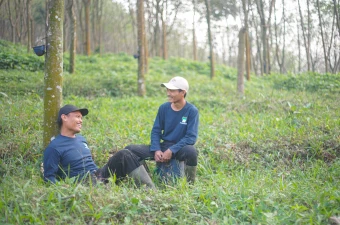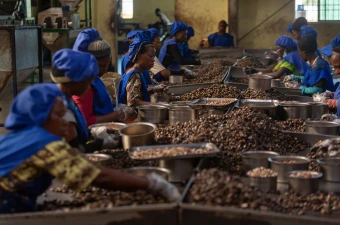Youth employment is enough of a problem in the Netherlands, but the situation in Moldavia is at the point where many young people are seeking their fortune abroad. The Moldavian organisation FACLIA has seen much success in its work to improve the job prospects for young people in their own country. This project, Muncă Decentă pentru TINEri ("decent work for young people"), was set up by CNV Internationaal with financial support from the European Union. One of the more common obstacles faced by newcomers to the Moldavian job market is a lack of awareness of their rights and responsibilities with regard to work and income. CNV Youth has provided advice and guidance to young people entering the Dutch job market for some time; reason enough to begin an exchange with their Moldavian counterparts.
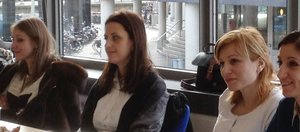
An intensive training and exchange programme
Ten Moldavian trainers visited the Netherlands in february 2014 to pick up new ideas for approaching the problem. Michiel Hietkamp, Tycho Filarski and Marieke Mulder of CNV Youth were able to put together an intensive four-day training and exchange programme for them! The Moldavians were introduced to the Technology Ambassadors programme, which sees CNV Youth members visiting secondary schools. They also paid a visit to JOB, the Dutch organisation focusing on vocational education.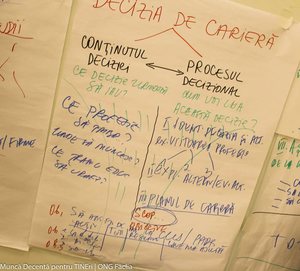
Education isn't linked to market demands at all
Stella Stratila found it very informative: “The biggest problem in Moldavia is that education isn't linked to market demands at all." This is the main driver behind an initiative from the CNSM trade union to prepare young people for working life and teach them how to adapt to it. A visit to "Colour Kitchen", a project for young people with limited access to the job market, was also on the agenda. The Moldavians thoroughly enjoyed their delicious meal. Finally, a visit to the National Youth Council provided some valuable insights into the finer points of lobbying and debating.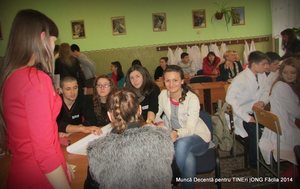
Youth perceptions in Moldova mirror the Netherlands
The programme also involved practical skills such as presentation techniques and the use of social media. “Youth perceptions in Moldava mirror those in the Netherlands, where union membership is no longer seen as part and parcel. The older generation was far more concerned with safety and security than the current one,” says Liliana. But the Communist era has left many young people with a jaded view of union membership.“Although many students receive automatic membership, more and more of them are renouncing it later on. We need to get better at explaining what we do and how young people might reap the benefits.Working towards agreements at various levels
We noticed that young people really started to respond to this project when we involved the media. We need to show them how we're working towards agreements with the Labour Inspectorate, tripartite social dialogue and regional collective labour agreements.” Carolina Trigub shared with us the importance of not limiting this project to the capital city of Chisinau;the majority of youth unemployment is to be found in rural areas. Thanks to EU support and the efforts of mobile volunteer teams, campaigns are now being run in four separate regions. They have enormous motivation and the local youth are learning to be more confident in their workplace communication skills. The positive response from the Minister for Employment is much appreciated. “Continuity is my greatest hope for this project ; we keep lobbying for the rollout of this project in other regions.” The pictures are made by Faclia during activities in Moldova. More information is available on the website of the project Muncă Decentă pentru TINEri” project More pictures and information also can be found on the Facebook page of Muncă-Decentă-pentru-TINEri
This website reflects the views only of the authors, and the Commission cannot be held responsible for any use which may be made of the information contained therein.
Publication date 02 04 2014
